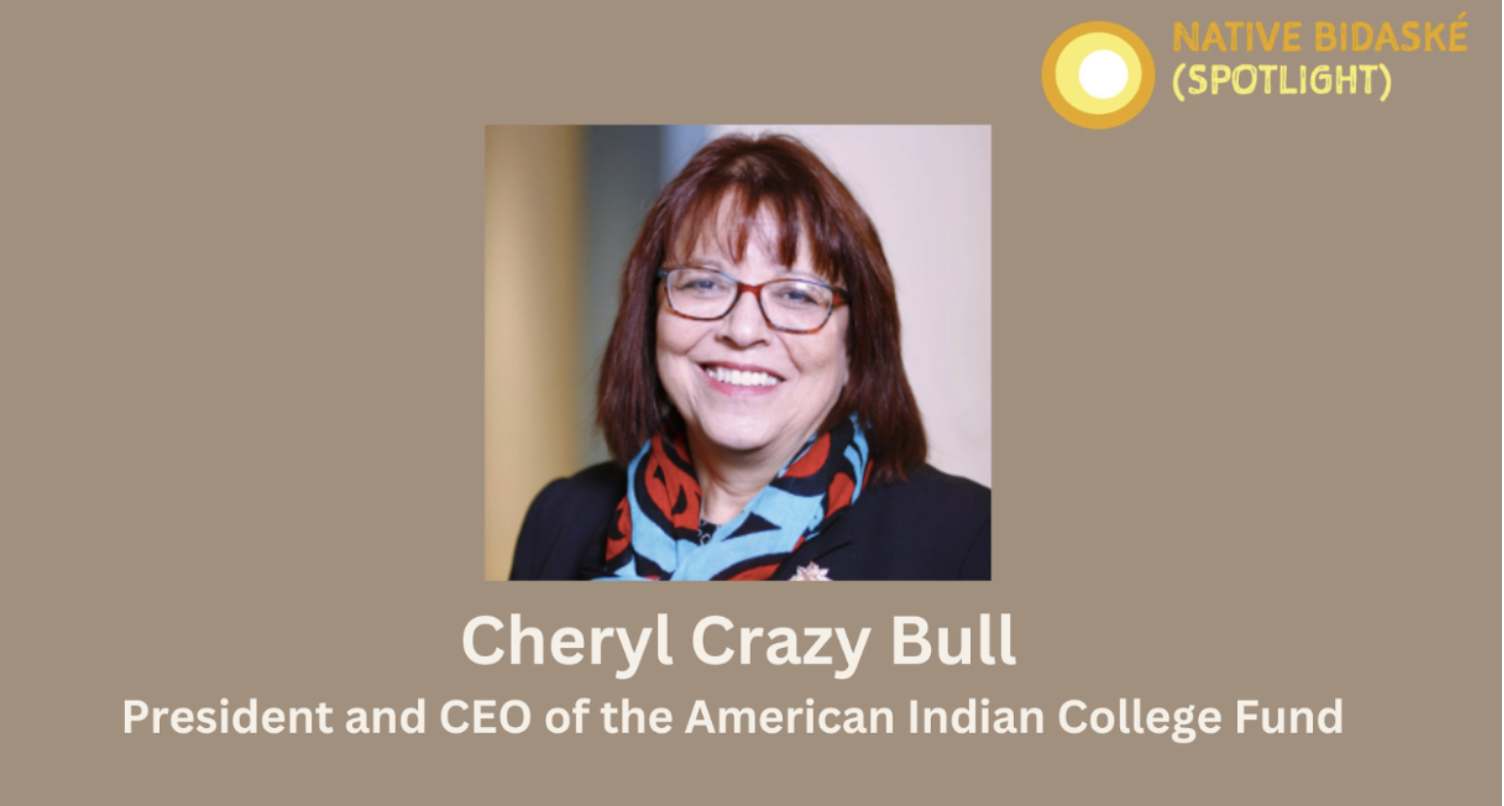
- Details
- By Neely Bardwell
Cheryl Crazy Bull, Wacinyanpi Win (They Depend on Her), the President and CEO of the American Indian College Fund, is a citizen of the Sicangu Lakota Nation. She has been in her position with the American Indian College Fund since 2012.
“The ruling is rooted in the sense that the United States is color blind,” Crazy Bull told Rickert. “We know as Indigenous people, and in relationship with other people of color, that is simply not true. In order for us to have an equitable experience in the United States, then we need to have systemic supports that gives us that in the higher education space. One of the things that the case made many of us who are in Native higher education realize is that there is not a lot of information about the impact of race-conscious admissions on American Indian and Alaska Native students.”
Crazy Bull speaks on how the ruling was disheartening to her and her colleagues. She spoke on a topic on everyone’s mind after the ruling: how Native students will be affected and what this means for the already low rate of enrollment for Native American students in higher education institutions.
Crazy Bull asserts that the American Indian College Fund affirms tribal citizenship, sovereignty, and the inequities that are tied to those identities. She makes the argument that the responsibility to ensure Native people are being provided the necessary tools for success falls to higher education institutions.
The American Indian College Fund is a nonprofit that centers on funding Native college students and their higher academic journeys. It is the nation’s largest and highest-rated American Indian nonprofit and provides more scholarships to Natives than any other organization.
Crazy Bull has a lifelong history of being an educator, community activist, as she uses the philosophy and traditions of Native people as the backbone of her activism.
More Stories Like This
Native News Weekly (August 25, 2024): D.C. BriefsUS Presidents in Their Own Words Concerning American Indians
Native News Weekly (January 18, 2026): D.C. Briefs
Federal Judge Orders ICE to Halt Use of Pepper Spray, Arrests of Peaceful Protesters in Twin Cities
Tunica-Biloxi Cultural Leader John D. Barbry Walks On
Help us defend tribal sovereignty.
At Native News Online, our mission is rooted in telling the stories that strengthen sovereignty and uplift Indigenous voices — not just at year’s end, but every single day.
Because of your generosity last year, we were able to keep our reporters on the ground in tribal communities, at national gatherings and in the halls of Congress — covering the issues that matter most to Indian Country: sovereignty, culture, education, health and economic opportunity.
That support sustained us through a tough year in 2025. Now, as we look to the year ahead, we need your help right now to ensure warrior journalism remains strong — reporting that defends tribal sovereignty, amplifies Native truth, and holds power accountable.
 The stakes couldn't be higher. Your support keeps Native voices heard, Native stories told and Native sovereignty defended.
The stakes couldn't be higher. Your support keeps Native voices heard, Native stories told and Native sovereignty defended.
Stand with Warrior Journalism today.
Levi Rickert (Potawatomi), Editor & Publisher


